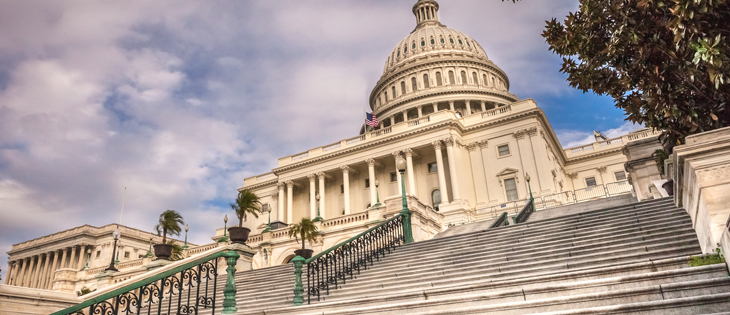Middle-Market Public Policy Roundup
Our weekly roundup is back, featuring insights on tax reform, midterm elections, new federal rules for banks and other issues the middle market should be watching.

Welcome back to MMG’s Public Policy Roundup. September is rapidly shaping up to be even more hectic than we originally anticipated on the policy front. We’ll do our best to keep you updated on what that means for middle-market firms.
Trump-Dem Debt Limit Deal
In quite possibly one of the most significant “deals” President Donald Trump has been responsible for since assuming office, an agreement has been reached between Democratic leaders and the president over the debt ceiling—a package now linked to Hurricane Harvey relief funding, The New York Times reports. The three-month deal, negotiated despite strong Republican objections, funds the government through Dec. 15.
What does this mean?
- Tax reform: The chances of comprehensive reform in 2017 are dwindling; there will now likely be a government funding fight when these discussions were initially expected to occur.
- Midterm elections: Republicans could return home to campaign with no major legislative accomplishments and more debt, challenging their reelection prospects and increasing the chances of the House flipping. This would make a major legislative accomplishment such as tax reform nearly impossible in the second half of President Trump’s first term.
- GOP Unity: The Republican leadership is growing increasingly disillusioned with the administration, creating a fraught legislative environment.
For a deeper look, check out Axios’ reporting.
Obamacare Remains the Law of the Land
With the current budget reconciliation window for the repeal of the Affordable Care Act ending on Sept. 30, it appears that the law will remain in full for the foreseeable future, per Politico. Though a bill is currently being planned by Republican Sens. Lindsey Graham of South Carolina and Bill Cassidy of Louisiana, it is highly unlikely that any legislation will see action on the Senate floor.
Though Republicans could write new reconciliation rules after Sept. 30, they will likely be used for tax reform efforts. More probable is an expansion of the current push to stabilize the law.
Fed Rules on Global Systematically Important Bank Contacts
In an effort to mitigate the systemic risk involved in a large bank default, the Federal Reserve passed a rule that “requires global systematically important banks (GSIBs) to amend the language in common financial contracts so they cannot be immediately canceled if the firm enters bankruptcy,” Reuters writes. The rules apply to contracts such as derivatives, securities lending and short-term funding transactions.
The new rules will apply to eight global systematically important banks, including JP Morgan, Citigroup and Goldman Sachs.
Check back each Friday for the weekly Public Policy Roundup. Is there a public policy issue you’d like us to cover? Send your suggestions to MMG Associate Editor Kathryn Mulligan at kmulligan@acg.org.

Ben Marsico works on public policy issues for ACG.


